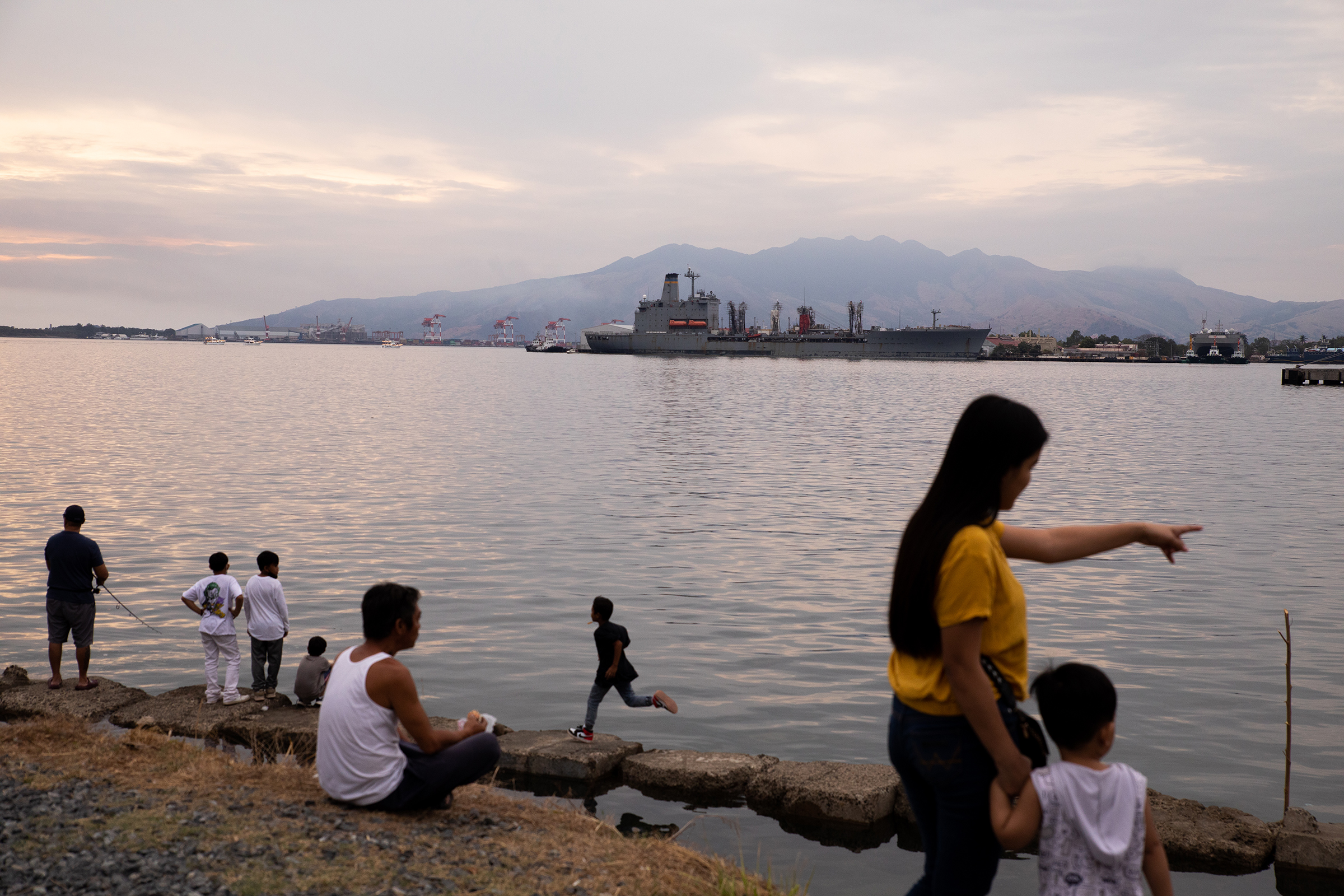Karewin Levante has lived most of her life in the shadow of the Subic Bay naval base. When she was only 7 years old, she would sell gum outside its gates from dusk to dawn, rarely making a profit. Now 45, Levante spends her days in the hot sun, selling corn dogs for 20 cents apiece. After a good shift, she might take home $10, though more often she says her earnings are closer to $3.
Barely scraping by is a familiar plight for people like Levante. “My entire life is a struggle,” she tells TIME.
Levante is one of tens of thousands of Filipinos who, according to a 2013 study, have been neglected since birth due to “dramatic exposure to racial prejudice, bias, and discrimination,” among other factors. Often referred to as Amerasians—people fathered and abandoned by American servicemen stationed overseas—they’re estimated to number in the hundreds of thousands when counting their children.
Levante was 13 when the U.S. military formally left the Philippines. Manila had decided to boot American forces out, ending nine decades of occupation—first as a colony, then as a military outpost in the Pacific. On Nov. 24, 1992, the last group of American soldiers and sailors boarded USS Belleau Wood and departed the Southeast Asian archipelago from Subic Bay, which was at the time the largest U.S. military installation overseas.
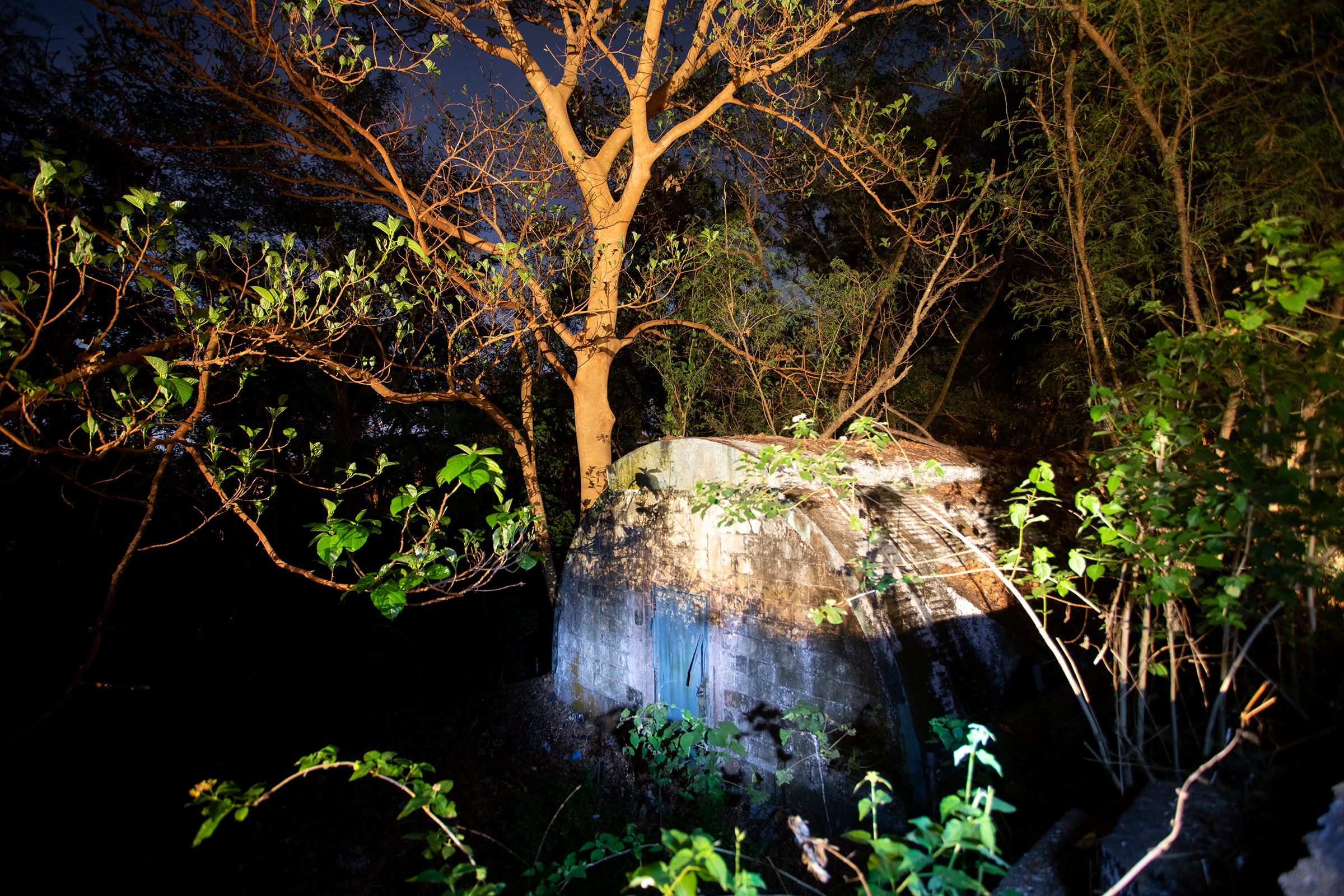
Levante was taunted as a child for being “left by the ship.” Now, the ships are coming back—but not for her. With the U.S. and the Philippines recently announcing a new pact to greatly enhance American military access to Philippine bases once again, she’s worried the mistakes of the past will be repeated.
In 1992, then-President of the Philippines Fidel Ramos made note of these “throwaway children,” as he called the Amerasians. “The welfare of these young Filipino-Americans remains the joint responsibility of both countries,” Ramos said during a changing of the guard ceremony at Subic Bay, adding that he would “not allow them to end up in poverty.”
But in the end, no one took responsibility. The vast majority of Filipino Amerasians have faced persistent stigmatization in their homeland and rejection from the land of their fathers. In Washington, efforts to help them fell by the wayside, while in places like Olongapo, the city adjacent to the former Subic Bay naval base, opportunities for Amerasians to escape hardship have been virtually nonexistent.
After the U.S. forces left, the base’s deserted barracks were left to crumble while its surrounding neighborhoods were transformed into a “special economic zone” with duty-free stores, a golf club, wildlife parks, and even its own international airport. Hundreds of millions of dollars were invested, and the area became a popular tourist destination—a transformation that helped see poverty rates in Olongapo drop from 24% in 1994 to less than 6% in 2018. Rolen Paulino, administrator of the Subic Bay Freeport Zone, tells TIME that the boom shows no signs of slowing down, and he welcomes the return of American servicemembers to his country. “We are running out of hotel rooms every weekend,” he says. “Our problems now are good problems.”


But while the area around them has been revitalized, the descendants of the soldiers who used to be stationed at Subic Bay are still waiting to see any benefits trickle their way. Levante and other Amerasians TIME spoke to in the Philippines recounted the name-calling and bullying they experienced as children—and the discrimination they continue to face as adults. Since many were the children of Filipino sex workers, they were tainted as illegitimate, and as unwanted relics of a rejected colonial past. For Black Filipino Amerasians, the intolerance remains even more acute. And all the Amerasians lamented that they can’t hide from discrimination. “It would just take one look,” says Anthony Hodge, a Black Amerasian who has advocated on behalf of Amerasians in Olongapo, for people to tell that they’re part-American.
Levante says she couldn’t care less about constantly shifting geopolitical dynamics between the U.S. and the Philippines. She just doesn’t want another generation to be “left behind.”
For many Amerasians, there’s an obvious path out of their struggles: American citizenship, that distant dream of millions around the world seeking a better life, is their birthright after all. Yet their Americanness that haunts them in the Philippines is not automatically recognized by the U.S.
To claim U.S. citizenship, just like anyone born to an American abroad, a Filipino Amerasian would need their father to certify his parentage before the child turns 18. A few have succeeded in meeting that requirement, but most have been unable to track their estranged father down—or been rebuffed by the man they found. The hope that they might one day make a new life across the Pacific sustained many Amerasian children for years, but by now, for the vast majority of them, the deadline has long passed.

Aging out of her eligibility to be recognized as a natural-born American didn’t stop Levante from seeking her father back in 2006. Exhausted and overwhelmed, she wanted answers more than anything. Eventually, she found an email address, and when she sent a message, to her delight, she got a reply.
Levante says her biological father, a sailor from Belfair, Washington, who left Subic for good in 1981, was sympathetic at first to her life story. But when she decided to ask him for help, noting that she was midway through a nursing attendant degree but would soon have to drop out because she couldn’t afford tuition, he replied: “Please do not think that I am a knight in shining armor who [is] going to ride in and rescue you.” A few months later, Levante was told by her father’s wife in the U.S. that he had died.
Some Amerasians, thanks to the internet and advances in DNA-testing technology, have reconnected with long lost dads who are supportive of their efforts to become a U.S. citizen. Still, even for them, the path to being recognized as an American is almost impossible—blocked by bureaucratic immigration processes and legislative obstacles, which, for Filipino Amerasians in particular, can feel especially unfair.
It’s not like Congress hasn’t thought about this. The Amerasian Immigration Act, which was passed in 1982, granted preferential immigration and eventual citizenship rights to children born to American servicemen and their Asian partners during the Vietnam War. Congress recognized that for many Amerasian children, establishing paternity through official records is difficult, if not impossible, so it explicitly allowed for the consideration of applicants’ appearance to determine their American ancestry. There’s no deadline to apply, and the program remains open to this day. Unfortunately for people like Levante, it’s limited—for no clear reason—to just five birth countries: Cambodia, Laos, South Korea, Thailand, and Vietnam.
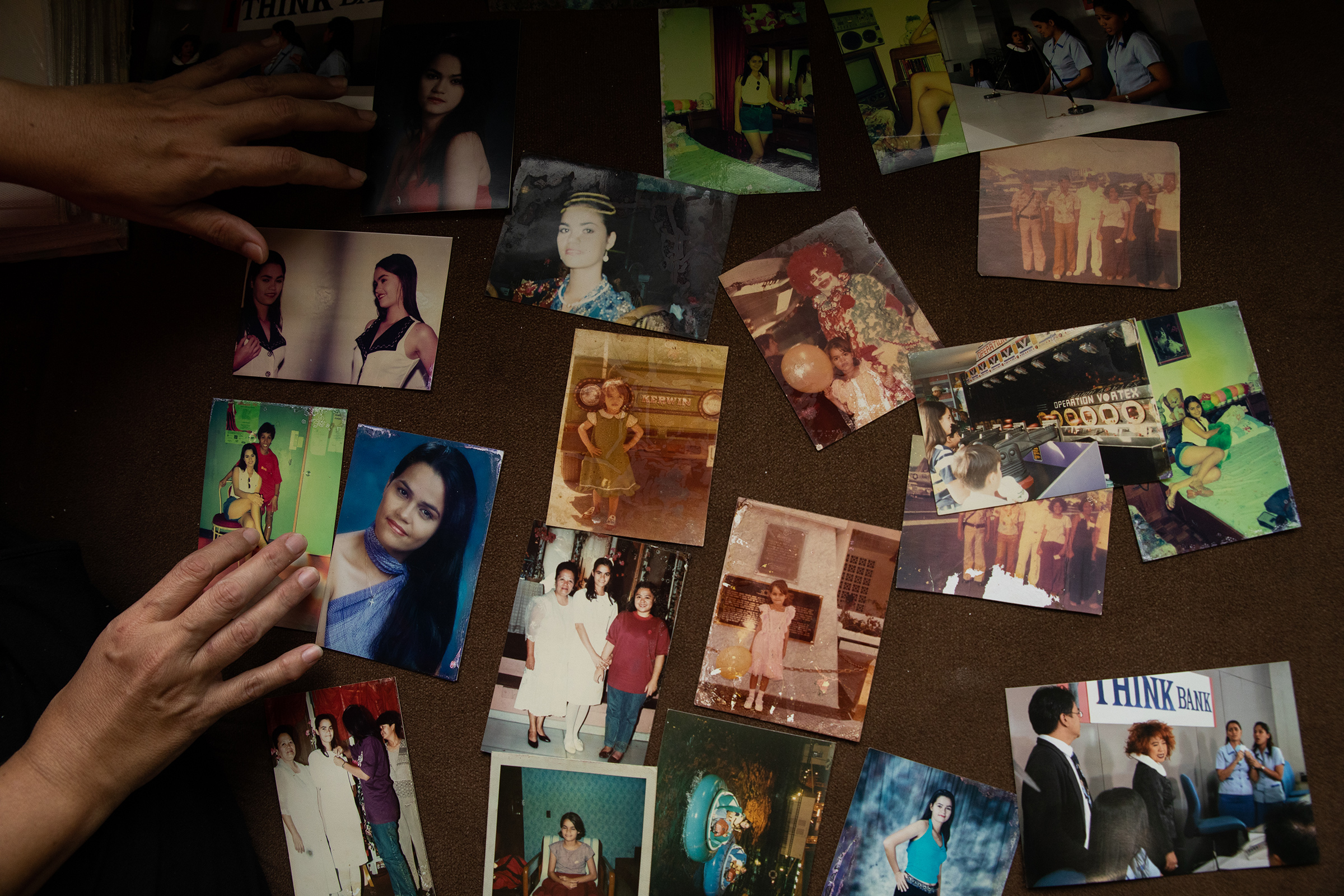
In response to questions about Filipino Amerasians continuing to be denied these benefits, a spokesperson for the State Department told TIME that “the inclusion of the Philippines under this provision would require legislative action.” When asked if the Biden Administration, which has pursued increased military partnership with the Philippines, plans to advocate for greater rights and protections for Filipino Amerasians, a spokesperson for the National Security Council told TIME it was “looking into this” but did not provide a response to repeated requests over several weeks.
In Congress, even as amendments to the 1982 law have been made—such as to provide mothers and other immediate family members of Vietnamese Amerasian children with a path to U.S. citizenship, too—Filipino Amerasians have remained excluded. Between 1983 and 2001, at least 11 bills were introduced in the House and Senate to extend Amerasian Immigration Act benefits to Amerasians born in the Philippines. But, despite at one point garnering more than 100 co-sponsors from both sides of the aisle, every bill failed to make it out of committee. (A separate bill to provide adult children—from any country—of American servicemembers with a conditional path to a five-year nonimmigrant visa to the U.S. was introduced in 2021 by former Rep. Ron Kind, a Democrat from Wisconsin. It only received one co-sponsor, Pennsylvania Republican Brian Fitzpatrick, whose office did not respond to a request for comment when asked if he would consider reintroducing the bill.)
TIME reached out to the offices of 17 members of Congress and three senators, as well as one now-Cabinet secretary, who all co-sponsored previous legislation to address this issue. Amid repeated requests for comment, two replied.
“The offspring of U.S. citizen servicemen are derivative citizens, like all sons and daughters of U.S. citizens,” said California Rep. Zoe Lofgren. A Democrat, Lofgren added that Republicans are blocking all efforts to reform the country’s immigration system. Said Rep. Anna Eshoo, another California Democrat: “I’ve worked to support Filipino-Americans, including my work on the U.S.-Philippines Friendship Caucus and by supporting previous legislation and appropriation efforts giving the children of Americans in the Philippines the same rights as those in other countries impacted by the legacy of the Vietnam War. If this legislation were introduced again, I would support these efforts.”
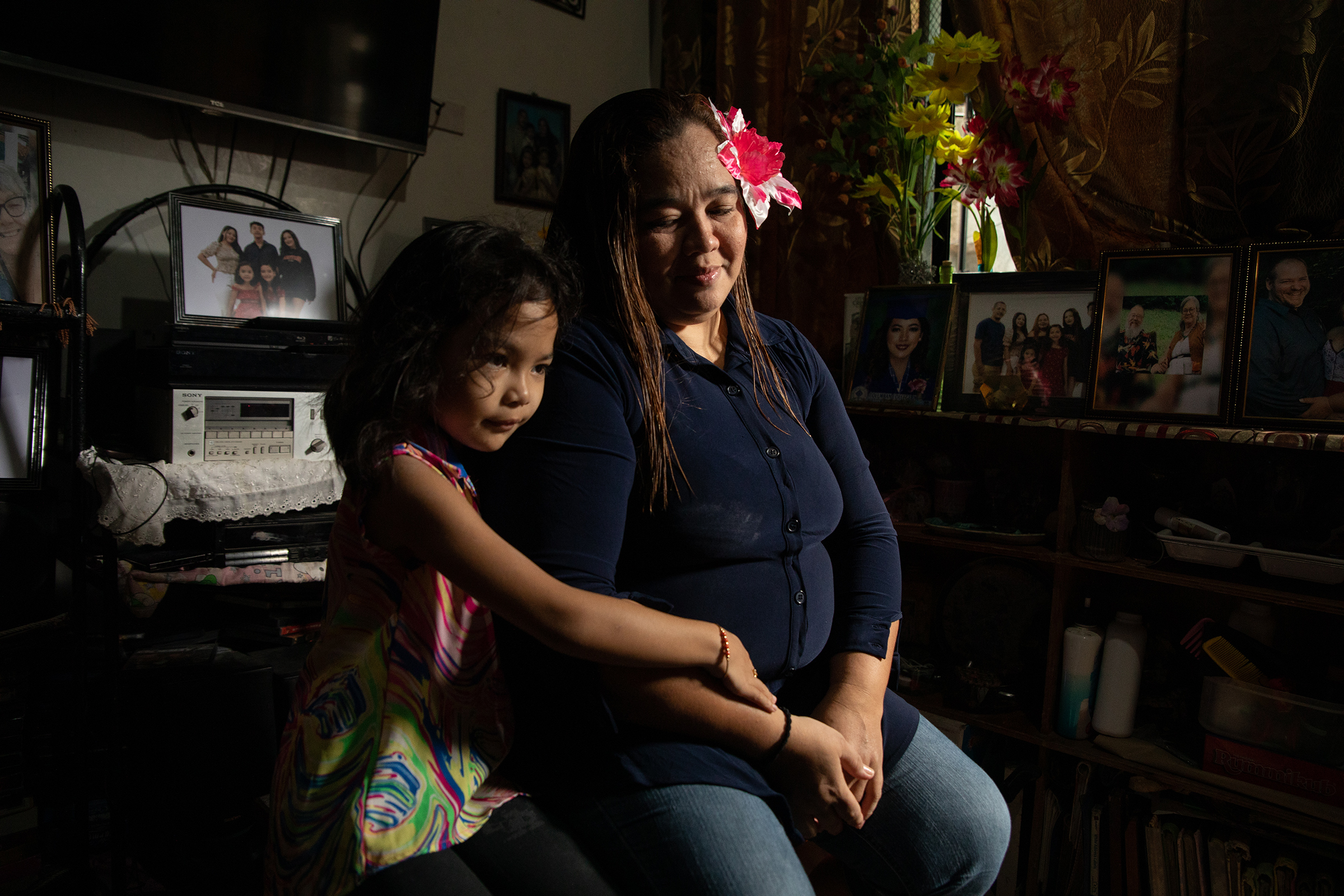
For the most part, the issue has seemed to fade from view for U.S. lawmakers, as families like Levante’s were left to languish. “We think we were bypassed,” Michelleann Miller Pangilinan, another Amerasian in Olongapo, tells TIME. “It’s as if that opportunity was taken away from us.”
It can often feel, many Amerasians say, like people don’t believe they are owed anything at all. There’s a pervasive notion, Levante and others told TIME, that lies at the root of the prejudice shown towards them: that they’re all the misbegotten progeny of “prostitutes”—unwanted by their fathers and a reflection of their mothers’ destitution. Sex work, after all, was the predominant occupation for locals in Subic Bay while the U.S. military base was open. While research has shown that not all relationships Filipino women had with American servicemen were transactional, this particular stigma still contributes most to the marginalization of Amerasians in the deeply Catholic Philippines.
The assumed illicitness of their conception has also bled into official rationale for America’s self-absolvement of responsibility for Filipino Amerasians. In 1993, a federal class action was filed against the U.S. government on behalf of 8,600 abandoned Amerasian children (from Olongapo alone) and their mothers. It sought $68.8 million for child support based on the claim that these mothers had an “implied contract” with American servicemen, assuring them and their resultant offspring financial and physical security in return for the role they played in the local “entertainment” industry, as sex work was euphemized.
“When the base was closed,” reads the introduction to the complaint, “negotiations were begun to obtain funds to clean up toxic damage to the local land of the former naval preserve, but nothing is being done to relieve the human damage which was done to those who were left behind, namely the thousands of forgotten children of American servicemen”—children who, it alleged, “were spawned by a system fostered for nearly five decades by U.S. Navy policies.”


Indeed, there’s evidence that the many bars and clubs, which often doubled as brothels, that amassed near bases both originated from and were propped up by demand from American military personnel. According to a sociological analysis of Olongapo, “before the U.S. Naval Base was constructed, commercialized prostitution was unthought of as a means of livelihood in the small fishing community.” A retired U.S. Navy judge advocate who served in the 1970s said in a 1993 academic interview, referring to the area surrounding Subic Bay, “we participated in creating the world’s biggest brothel.”
Driven by desperation to escape poverty, many locals, including Levante’s mother, took part in providing the services desired by American officers and enlisted. “We’re not there because we want to,” says Alma Bulawan, a former worker in Subic’s red-light district who now runs the Buklod Center, which supports survivors of sex exploitation. “This is a matter of economics.”
According to the class action, “the U.S. Navy exercised almost total control over the local entertainment industry and its ‘hospitality women’ in a joint arrangement with officials of the municipality.” The Navy in its official capacity required Filipino sex workers to register with the local government and submit to health checkups, and it funded a medical and educational clinic for the women and their children. That support, the case argues, was unjustly “abruptly ended” when American forces officially departed Subic Bay, leaving the women resourceless and forsaking thousands of “leftover” children, many of whom became homeless.
Ultimately, however—according to the judge’s unpublished opinion, a copy of which TIME exclusively obtained—the Navy moved for and won a dismissal on the grounds that no such agreement was established and that even if one had been, because it involved paying for “sexual services,” it would be an “illegal contract” and thus unenforceable by the courts. (The U.S. Navy did not respond to a request for comment.)
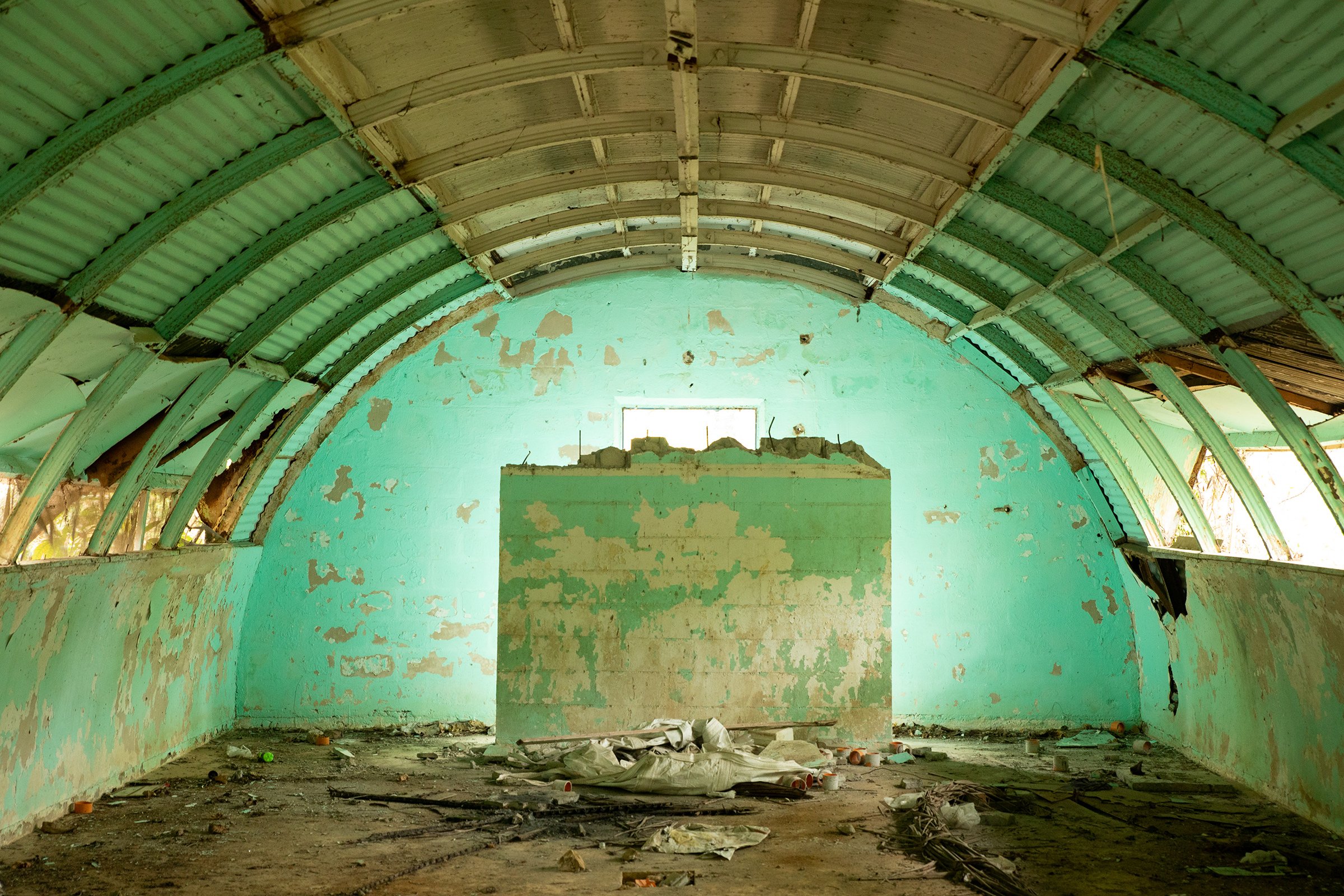
Joseph Cotchett, the pro bono attorney who filed the lawsuit on behalf of the Amerasians, also did not respond to TIME’s repeated requests for comment but claims on his firm’s website that “the case resulted in a settlement giving direct U.S. aid to the children fathered by U.S. servicemen.” Father Shay Cullen, an Irish Catholic priest who founded Preda, a charity that has cared for distressed children in the Philippines since 1974, tells TIME the “settlement”—which was not a formal settlement because the case was involuntarily dismissed—refers to a USAID grant of $650,000 provided to another foundation that was taking care of some 3,500 Filipino-Amerasians. While not nothing, it amounted to just about $180 to be used for each of those children, compared to the $8,000 per child the lawsuit was originally seeking for more than twice as many Amerasians. Says Cullen: “I have a deep feeling of disappointment and betrayal and just anger at the injustice and lack of compassion by U.S. and Filipino authorities.”
Sadly, some now-grown Amerasians have found themselves pushed toward sex work, which, although illegal, has grown to a multi-billion-dollar industry in the Philippines. Andrew Macleod, executive director of the child protection charity Hear Their Cries, tells TIME that the U.S.’s longtime and renewed presence in the Philippines has not only bolstered the Filipino sex industry but also contributed to broader domestic and sexual violence and abuse. There’s a not-unfounded perception, says Macleod, that the U.S. military operates with impunity when it comes to women and children in the country. It’s past time, he says, that “the U.S. should take responsibility for some of the consequences.”
Back in her apartment, Levante says that, although it’s unfair, she’s resigned to the fact that no one is coming to help. But she worries about whether the U.S. will learn any lessons moving forward, or if it will simply continue pursuing its geopolitical and military goals, carelessly creating more victims along the way.
“This is their doing and we, the children, had no knowledge of what was going on,” she says. “This wouldn’t have happened if [the Americans] did not have business here.”
More Must-Reads from TIME
- Cybersecurity Experts Are Sounding the Alarm on DOGE
- Meet the 2025 Women of the Year
- The Harsh Truth About Disability Inclusion
- Why Do More Young Adults Have Cancer?
- Colman Domingo Leads With Radical Love
- How to Get Better at Doing Things Alone
- Michelle Zauner Stares Down the Darkness
Contact us at letters@time.com
